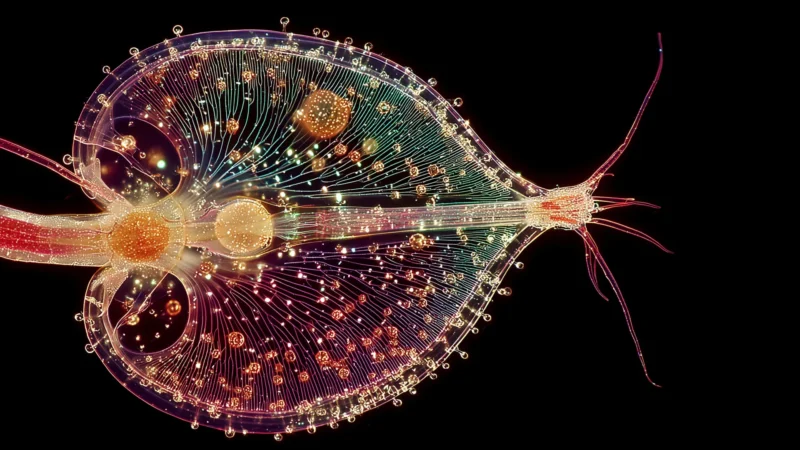Quick Takeaways
-
Groundbreaking Mini-Brains: Scientists developed a three-dimensional “mini-brain” in a lab, allowing for animal-free research on brain cell interaction and function over two years.
-
Spider-Inspired Wound Care: A new glove mimicking spider spinnerets enables real-time creation of ultra-thin polymer wound dressings, revolutionizing care in various medical environments.
-
Natural Produce Preservation: An edible coating derived from wolf apples significantly extends the freshness of baby carrots at room temperature for up to 15 days, offering a cost-effective preservation solution.
-
Microplastics in Retinas: Research revealed microplastic particles in every analyzed post-mortem human retina, raising concerns about their potential impact on vision and eye health.
Innovative Solutions from Nature
Recent advancements in science may sound like horror movie scenarios, yet they promise to revolutionize healthcare. Researchers have successfully grown mini-brains in lab dishes, paving the way for groundbreaking studies. These tiny organoids demonstrate how brain cells interact without involving animals in experiments. As scientists harness this technology, we could see new methods for understanding neurological diseases and treatments that arise from this research.
Additionally, a spider-inspired glove now allows medical personnel to create real-time wound dressings. This tool releases ultra-thin polymer fibers that adhere directly to injuries, streamlining emergency care in hospitals and other settings. The practical applications of this invention likely extend beyond simple cuts, promising quicker healing times and enhanced patient outcomes.
Preserving Health and Freshness
Advances in food preservation also raise eyebrows, yet they provide potential solutions for waste reduction. A study revealing an edible coating from the wolf apple demonstrates effective strategies for keeping produce fresh longer. By utilizing natural materials, this approach offers a sustainable way to reduce the volume of spoiled food, addressing both health and environmental concerns.
Moreover, recent research unveiling the presence of microplastics in human retinas reveals disturbing trends in public health. As these materials permeate delicate tissues, discussions on eye health and environmental safety gain urgency. Understanding the impact of microplastics on vision could spark crucial research aimed at combating their proliferation.
As science explores these “creepy” topics, advancements become increasingly relevant. The practical applications of mini-brains, spider gloves, and innovative coatings contribute significantly to our collective journey toward improved health. Embracing these findings means engaging with the future, one eerie breakthrough at a time.
Continue Your Tech Journey
Stay informed on the revolutionary breakthroughs in Quantum Computing research.
Access comprehensive resources on technology by visiting Wikipedia.
TechV1

